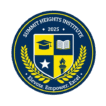
Program Overview
Program Duration: 2 Years (4 Semesters) Qualification Level
The Diploma in Human Resources Management at Summit Heights Institute is a forward-thinking program that prepares students for the evolving landscape of HR. This curriculum integrates cutting-edge practices, digital competencies, and a global perspective to equip graduates with the strategic and operational skills demanded by today’s organizations. Students will gain expertise in areas such as digital HR, people analytics, diversity and inclusion, and agile HR methodologies, ensuring they are well-prepared to drive human capital success in any industry.
Key Program Pillars
- Strategic HR Partnership: Understanding HR’s role as a strategic business partner.
- Digital & Data Fluency: Leveraging technology and data for informed HR decisions.
- People-Centric Approach: Fostering positive employee experiences and well-being.
- Global & Inclusive Mindset: Navigating diverse workforces and international HR challenges.
- Agility & Adaptability: Preparing for the future of work and continuous change.
Learning Outcomes
Upon successful completion of this Diploma, graduates will be able to:
- Formulate and implement strategic HR initiatives that align with organizational goals and global business trends.
- Apply advanced digital tools and analytical methods to optimize HR processes and inform talent decisions.
- Design and manage comprehensive talent acquisition strategies, including employer branding and diverse sourcing.
- Develop and administer total rewards systems, encompassing compensation, benefits, and employee well-being programs.
- Navigate complex employment law, ethical considerations, and governance frameworks in a global context.
- Implement continuous performance management systems and foster a culture of feedback and coaching.
- Design and deliver modern learning and development interventions, leveraging digital platforms and adult learning principles.
- Cultivate positive employee relations, manage conflict, and enhance employee engagement and belonging.
- Lead and support organizational change initiatives, applying agile HR principles.
- Utilize people analytics to derive actionable insights and demonstrate HR’s impact on business outcomes.
- Demonstrate strong professional communication, ethical decision-making, and problem-solving skills in diverse HR scenarios.
Curriculum Structure
Year 1: Foundational & Digital HR Competencies
Semester 1
- HRM101: Strategic HR in a Global Context
- Description: This module establishes the strategic importance of HR as a core business function. It explores the evolving role of HR in a globalized world, examining current trends, challenges, and the impact of macro-environmental factors on HR strategy.
- Learning Outcomes: Analyze the strategic role of HR; identify global HR trends; explain HR’s contribution to organizational competitive advantage; understand the ethical foundations of HR.
- HRM102: Organizational Behavior and Design
- Description: Focuses on understanding individual, group, and organizational dynamics. Topics include motivation, leadership, team effectiveness, organizational culture, and modern organizational design principles (e.g., agile structures, flat hierarchies).
- Learning Outcomes: Evaluate theories of motivation and leadership; analyze group dynamics; assess organizational culture; propose effective organizational structures.
- HRM103: Professional Communication & Digital Literacy for HR
- Description: Develops advanced communication skills essential for HR professionals, including persuasive writing, impactful presentations, digital communication etiquette, and effective negotiation. It also covers essential digital tools for HR.
- Learning Outcomes: Craft professional HR communications; deliver engaging presentations; utilize digital collaboration tools; apply effective negotiation strategies.
- HRM104: Business Acumen and Financial Literacy for HR
- Description: Equips HR students with foundational business knowledge, including financial statements, budgeting, cost analysis, and understanding key business metrics. This module emphasizes how HR decisions impact financial performance.
- Learning Outcomes: Interpret financial statements; develop HR budgets; calculate ROI for HR initiatives; understand business models and value chains.
Semester 2
- HRM105: Talent Acquisition & Employer Branding
- Description: Covers the end-to-end talent acquisition process in the digital age. Topics include strategic workforce planning, job analysis, modern sourcing techniques (e.g., social recruiting, AI in recruitment), employer branding, candidate experience, and effective onboarding.
- Learning Outcomes: Develop a strategic workforce plan; create compelling employer branding initiatives; implement diverse sourcing strategies; design impactful candidate experiences and onboarding programs.
- HRM106: Total Rewards: Compensation, Benefits & Well-being
- Description: Explores comprehensive total rewards strategies, including base pay, variable pay, executive compensation, global benefits administration, and the growing importance of employee well-being (physical, mental, financial).
- Learning Outcomes: Design competitive compensation structures; manage diverse benefits programs; develop well-being initiatives; understand the legal and ethical aspects of total rewards.
- HRM107: Employment Law, Ethics & Governance
- Description: Provides an in-depth understanding of national and international employment laws, regulations, and ethical standards governing HR practices. Topics include fair labor practices, discrimination, data privacy (e.g., GDPR), and corporate governance in HR.
- Learning Outcomes: Interpret key employment legislation; ensure compliance with HR regulations; apply ethical frameworks to HR dilemmas; understand data privacy requirements in HR.
- HRM108: HR Technology & Digital Transformation
- Description: Focuses on the role of technology in modern HR. Students will learn about Human Resource Information Systems (HRIS), HR analytics platforms, automation in HR, AI applications (e.g., chatbots, predictive hiring), and data security in HR tech.
- Learning Outcomes: Evaluate HRIS functionalities; understand the impact of AI on HR; identify opportunities for HR automation; apply principles of data security in HR systems.
Year 2: Advanced Strategies & Future-Ready HR
Semester 3
- HRM201: Performance, Feedback & Coaching
- Description: Moves beyond traditional appraisals to focus on continuous performance management, fostering a feedback-rich culture, and developing coaching skills for managers and HR professionals. Includes goal setting (e.g., OKRs) and performance improvement plans.
- Learning Outcomes: Implement continuous performance management systems; provide effective feedback; apply coaching techniques; develop performance improvement strategies.
- HRM202: Learning & Development in the Digital Age
- Description: Covers modern approaches to employee learning and development, including instructional design, digital learning platforms (LMS, LXP), microlearning, upskilling/reskilling strategies, and the measurement of learning impact.
- Learning Outcomes: Conduct training needs assessments; design engaging digital learning content; evaluate the effectiveness of L&D programs; develop upskilling/reskilling initiatives.
- HRM203: Employee Relations & Engagement
- Description: Explores strategies for building and maintaining positive employee relations, managing grievances, disciplinary processes, conflict resolution, and fostering high levels of employee engagement and retention. Includes an overview of labour relations and collective bargaining.
- Learning Outcomes: Implement effective employee relations strategies; resolve workplace conflicts; manage disciplinary procedures fairly; develop employee engagement initiatives.
- HRM204: Diversity, Equity, Inclusion & Belonging (DEIB)
- Description: This critical module delves into the principles and practices of DEIB. It covers unconscious bias, inclusive leadership, building diverse teams, creating equitable policies, and fostering a sense of belonging for all employees.
- Learning Outcomes: Develop DEIB strategies; identify and mitigate unconscious bias; promote inclusive leadership; create equitable HR policies.
Semester 4
- HRM205: Advanced Strategic HR & Future of Work
- Description: This capstone module integrates all previous learning, focusing on advanced strategic HR planning, scenario planning for future workforce needs, and adapting HR to emerging work models (e.g., hybrid work, gig economy, automation’s impact).
- Learning Outcomes: Formulate advanced strategic HR plans; anticipate future workforce challenges; adapt HR practices to new work models; integrate sustainability into HR strategy.
- HRM206: Organizational Development & Agile HR
- Description: Explores theories and interventions in organizational development (OD) and the application of agile methodologies to HR. Students will learn to facilitate organizational change, foster innovation, and build resilient workforces.
- Learning Outcomes: Apply OD principles to organizational challenges; implement agile HR practices; lead change management initiatives; foster a culture of innovation.
- HRM207: People Analytics & Data-Driven Decision Making
- Description: Provides hands-on experience with people analytics. Students will learn to collect, analyze, and interpret HR data to identify trends, predict outcomes, and provide data-driven recommendations to business leaders.
- Learning Outcomes: Collect and clean HR data; perform basic statistical analysis on HR metrics; create compelling data visualizations; present data-driven HR insights.
- HRM208: HR Capstone Project & Professional Portfolio
- Description: Students will undertake a significant, industry-relevant HR project, applying integrated knowledge and skills from across the curriculum. This module culminates in the development of a professional portfolio showcasing their competencies.
- Learning Outcomes: Execute a comprehensive HR project; apply critical thinking and problem-solving to real-world HR scenarios; develop a professional HR portfolio; present project findings to stakeholders.
